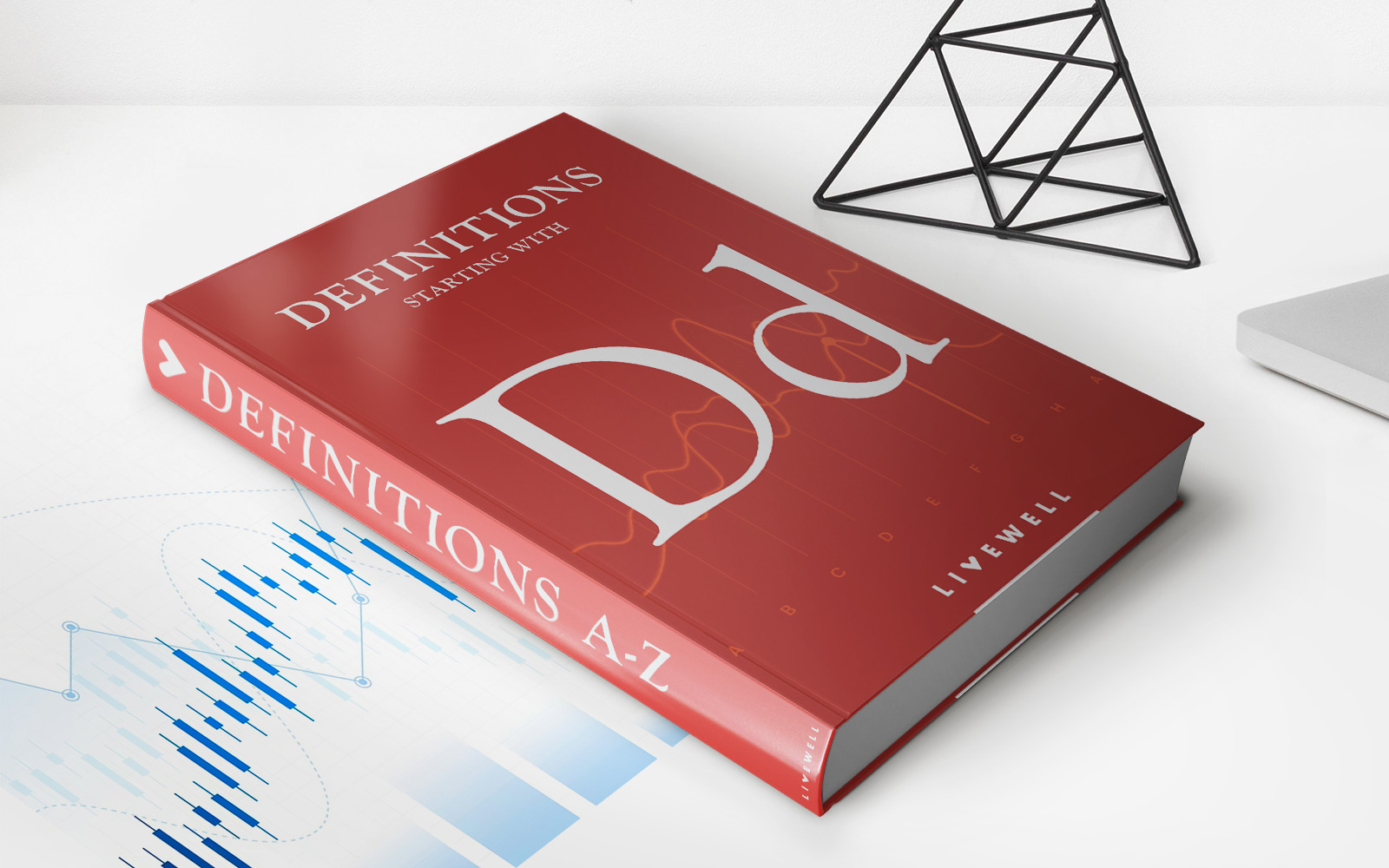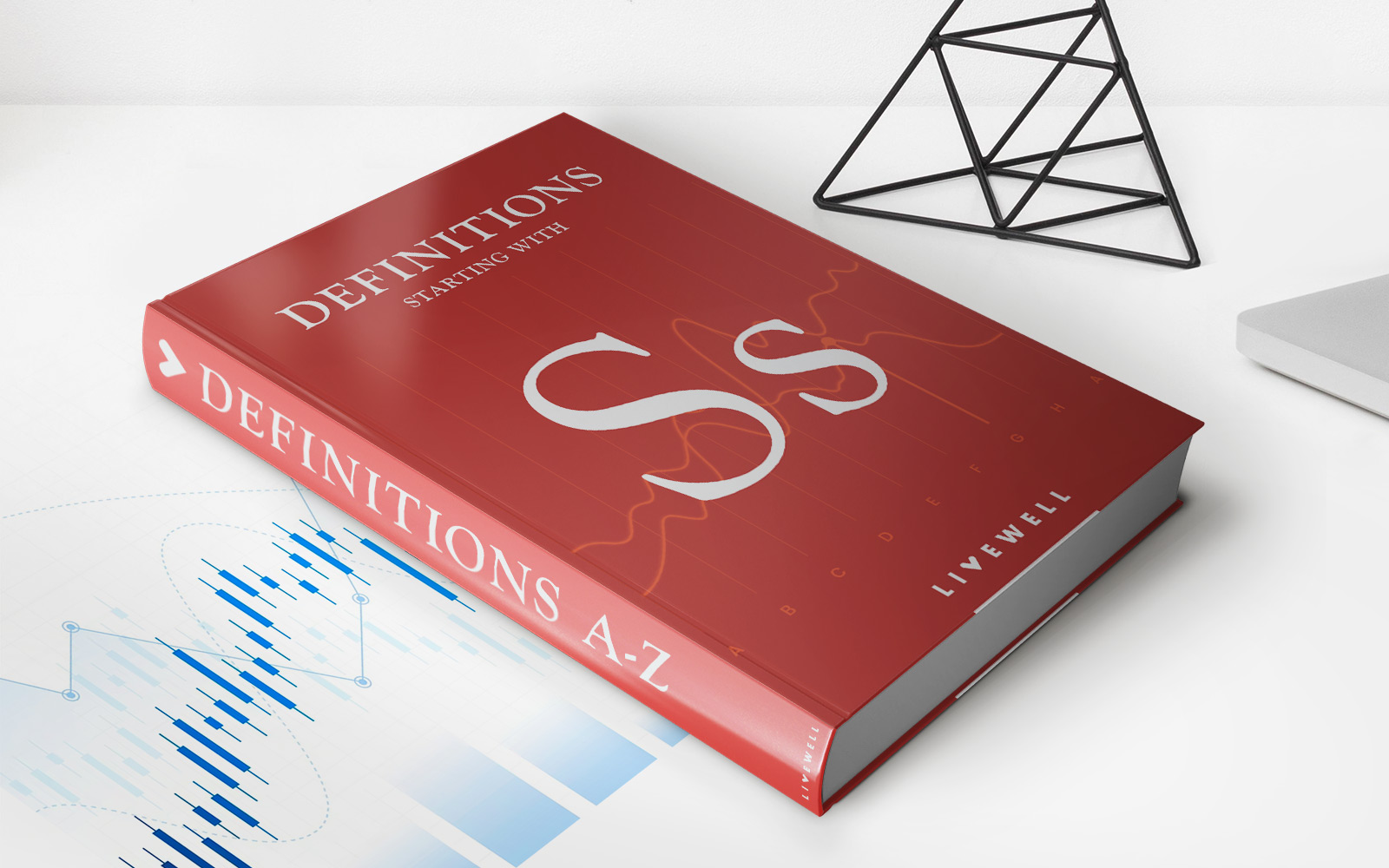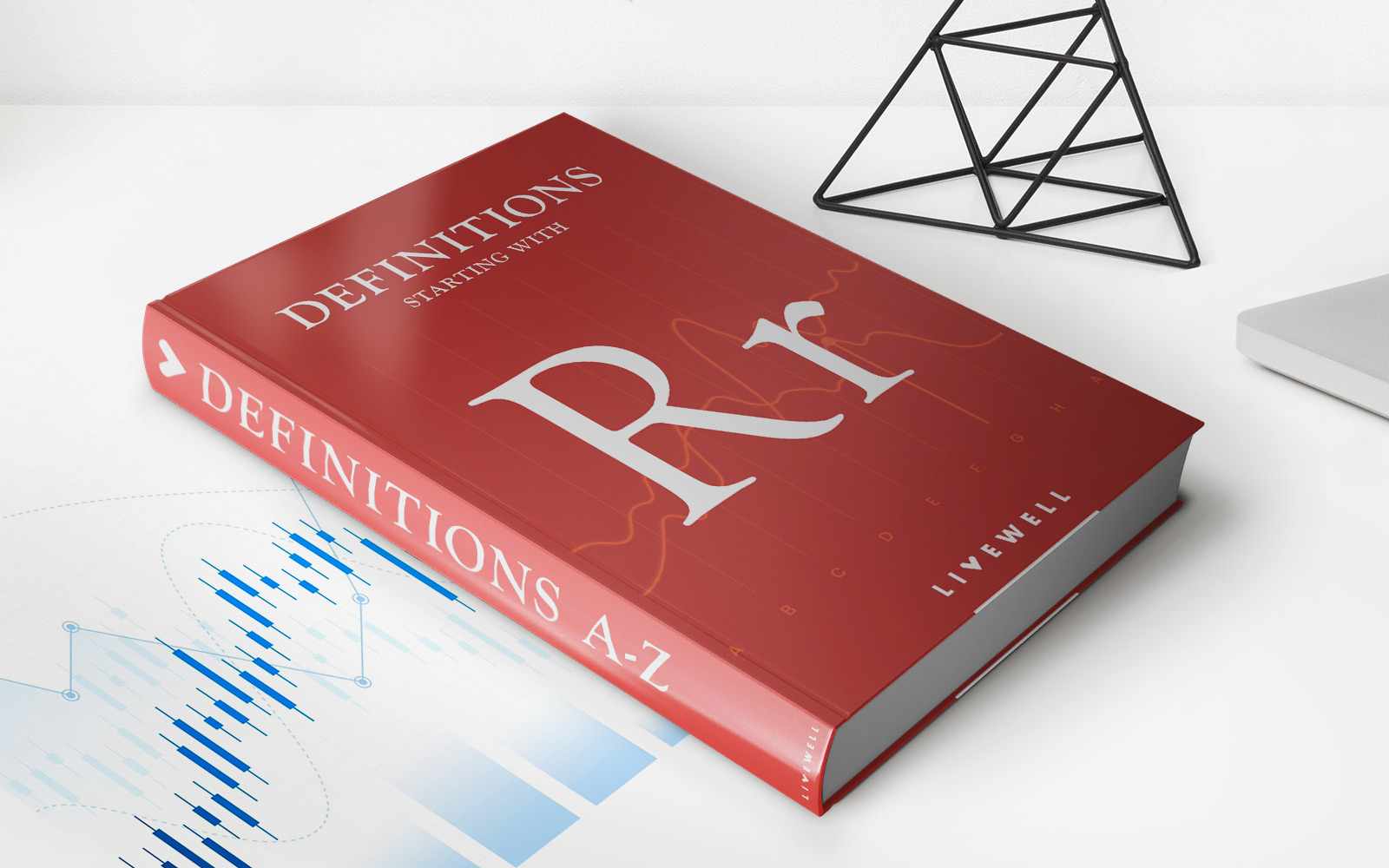

Finance
What Can I Get With A 625 Credit Score
Published: October 23, 2023
Discover the possibilities with a 625 credit score. Explore finance options and find out what you can achieve.
(Many of the links in this article redirect to a specific reviewed product. Your purchase of these products through affiliate links helps to generate commission for LiveWell, at no extra cost. Learn more)
Table of Contents
- Introduction
- Understanding Credit Scores
- What is a 625 Credit Score?
- Impact of a 625 Credit Score
- Types of Loans Available with a 625 Credit Score
- Interest Rates and Terms for a 625 Credit Score
- Credit Cards for a 625 Credit Score
- Renting an Apartment with a 625 Credit Score
- Tips to Improve a 625 Credit Score
- Conclusion
Introduction
Welcome to the world of credit scores! Your credit score plays a crucial role in determining your financial health and the opportunities available to you. Whether you’re looking to take out a loan, rent an apartment, or even apply for a credit card, your credit score is a key factor that lenders consider. In this article, we will explore what you can expect with a 625 credit score.
Before we dive into the specifics, let’s briefly touch on what credit scores are and why they matter. A credit score is a three-digit number that represents your creditworthiness based on your financial history. It is calculated using various factors such as credit utilization, payment history, length of credit history, and types of credit used. Lenders use this score to assess the risk of lending you money or extending credit.
Now, let’s focus on a credit score of 625. This falls within the fair credit range, which means you have a moderate credit profile. While it may not qualify you for the most favorable terms and rates, it doesn’t mean you’re out of options. With a 625 credit score, there are still opportunities available to you, and in this article, we will explore what you can expect.
Understanding Credit Scores
Before we dive into the specifics of a 625 credit score, it’s important to have a solid understanding of credit scores in general. As mentioned earlier, a credit score is a numerical representation of your creditworthiness based on your financial history. It helps lenders assess the risk of lending money to you.
There are several credit scoring models used, but the most commonly used one is the FICO Score. FICO Scores range from 300 to 850, with higher scores indicating better credit and lower scores suggesting higher risk. The scores are typically classified into different categories:
- Excellent: 800-850
- Very Good: 740-799
- Good: 670-739
- Fair: 580-669
- Poor: 300-579
A credit score of 625 falls within the fair credit range. While it may not be considered excellent or even good, it can still provide you with opportunities to access credit and financial services, although at less favorable terms and rates compared to those with higher scores.
Now that we have a basic understanding of credit scores, let’s explore what having a 625 credit score means for you.
What is a 625 Credit Score?
A credit score of 625 is considered to be in the fair credit range. This means that while your credit profile may not be the strongest, it is still considered moderate and may open up some financial opportunities for you.
With a 625 credit score, lenders will generally view you as a moderate risk when it comes to borrowing money. This can impact the terms and rates you may be offered for loans, credit cards, and other financial products.
While a credit score of 625 may not qualify you for the most competitive interest rates and terms, it does not mean that you will be outright rejected for credit opportunities. Many lenders still consider fair credit scores and are willing to extend credit to individuals within this range.
It’s important to note that a credit score is not the sole factor considered by lenders. They also take into account other aspects such as your income, employment history, and debt-to-income ratio. These additional factors can influence their decision to approve or deny your application.
If you have a 625 credit score, it’s crucial to be aware of your credit profile and take steps to improve it. By understanding the factors that contribute to your credit score and adopting responsible financial habits, you can work towards improving your creditworthiness, which will open up more opportunities in the future.
Impact of a 625 Credit Score
Having a credit score of 625 can have various implications on your financial life. While it may not be the highest score, it’s still important to understand how it can affect your borrowing capabilities and financial opportunities.
1. Loan Approvals: With a 625 credit score, you may still be eligible for loans, although you may face some hurdles. Lenders may offer you loans, but the interest rates and terms may not be as favorable compared to those with higher credit scores. You may also be required to provide additional documentation or collateral to secure the loan.
2. Interest Rates: Your credit score heavily influences the interest rates you’ll be offered. With a 625 credit score, you may receive higher interest rates on loans and credit products. This is because lenders see you as a moderate risk borrower, and they may adjust the rates to mitigate their potential losses.
3. Credit Card Options: While you may not have access to all credit cards on the market, there are still credit card options available for individuals with fair credit scores. You may be eligible for credit cards with lower credit limits or secured credit cards, which require a cash deposit as collateral.
4. Housing Rental: Your credit score can also impact your ability to rent an apartment. Landlords often check credit scores as part of the application process. With a 625 credit score, you may still be able to secure a rental, but you might face stricter screening or may be required to provide a larger security deposit.
5. Insurance Premiums: It’s worth noting that your credit score can also influence the premiums you pay for auto insurance and homeowners insurance. A lower credit score can result in higher insurance rates, as insurers consider individuals with lower credit scores to be higher-risk policyholders.
While a 625 credit score may have some limitations, it’s important to remember that it’s not a permanent state. By practicing good credit habits such as making timely payments, keeping credit utilization low, and limiting new credit applications, you can work towards improving your credit score over time.
Next, let’s examine the types of loans available for individuals with a 625 credit score.
Types of Loans Available with a 625 Credit Score
While a credit score of 625 may not make you eligible for the most favorable loan terms and interest rates, there are still loan options available for individuals within this credit range. Let’s explore some of the types of loans you can consider with a 625 credit score:
1. Personal Loans: Personal loans are unsecured loans that can be used for various purposes, such as debt consolidation, home improvements, or unexpected expenses. With a 625 credit score, you may still be eligible for a personal loan, although you may encounter higher interest rates and stricter borrowing requirements.
2. Auto Loans: If you’re looking to purchase a car, auto loans are an option to consider. With a 625 credit score, you may still be able to obtain an auto loan, although you may face higher interest rates and a more limited selection of lenders. It’s important to shop around and compare offers to find the best terms available to you.
3. Home Equity Loans or Lines of Credit: If you own a home and have built up equity, you may be eligible for a home equity loan or line of credit. These loans use your home as collateral, making them less risky for lenders. While a 625 credit score may not disqualify you, it may impact the interest rates and terms you’re offered.
4. Secured Loans: Secured loans require collateral, such as a savings account, certificate of deposit, or valuable asset, to secure the loan. With a 625 credit score, you may have better chances of obtaining a secured loan, as the collateral provides additional assurance for the lender.
5. Peer-to-Peer Loans: Peer-to-peer lending platforms connect borrowers with individual investors. These platforms often have more flexible lending criteria, making it possible to get a loan with a 625 credit score. Keep in mind that interest rates may still be higher compared to individuals with stronger credit profiles.
It’s important to note that while these loan options may be available, it’s crucial to carefully assess your financial situation and ensure that taking on additional debt is within your means. It’s also a good idea to compare offers from different lenders to secure the most favorable terms possible.
Next, let’s examine the interest rates and terms you can expect with a 625 credit score.
Interest Rates and Terms for a 625 Credit Score
When it comes to interest rates and terms for loans, your credit score plays a significant role. With a credit score of 625, you may experience higher interest rates and less favorable terms compared to individuals with stronger credit profiles. Let’s take a closer look at what you can expect:
1. Mortgage Loans: For individuals with a 625 credit score, securing a mortgage loan can be challenging. Lenders may consider you a higher risk borrower, resulting in higher interest rates and additional requirements such as a larger down payment or stricter income verification.
2. Auto Loans: With a 625 credit score, you may still qualify for an auto loan, although interest rates may be higher. Lenders may also require a larger down payment or collateral to offset the perceived risk.
3. Personal Loans: Interest rates for personal loans with a 625 credit score will likely be higher compared to those with excellent credit. The exact rates may vary depending on the lender and your financial profile, but be prepared for higher borrowing costs.
4. Credit Cards: Individuals with fair credit scores often have access to credit cards, although with lower credit limits and higher interest rates. Look for credit cards specifically designed for individuals with fair credit, as they may offer more favorable terms compared to standard credit cards.
5. Student Loans: Federal student loans may be accessible regardless of credit score, while private student loans may require a cosigner or come with higher interest rates for those with a 625 credit score.
It’s important to shop around and compare offers from multiple lenders to find the best terms available to you. Consider working on improving your credit score over time to access more favorable interest rates and terms for future borrowing needs.
Remember, interest rates and terms can vary based on various factors, including the lender, loan amount, loan term, and your overall financial profile. It’s always a good practice to read and understand the terms and conditions before committing to any loan agreement.
Next, let’s explore the credit card options available for individuals with a 625 credit score.
Credit Cards for a 625 Credit Score
If you have a credit score of 625, you may still have access to credit cards, although your options may be more limited compared to individuals with higher credit scores. While you may not qualify for premium credit cards with generous rewards and low interest rates, there are credit card options available for individuals in the fair credit range. Here are a few possibilities to consider:
1. Secured Credit Cards: Secured credit cards are a popular option for individuals looking to build or rebuild their credit. These cards require a security deposit, which serves as collateral against the credit limit. With responsible use and timely payments, you can establish a positive credit history and potentially upgrade to an unsecured card in the future.
2. Starter Credit Cards: Some credit card issuers offer starter credit cards designed for individuals with limited credit history or lower credit scores. These cards may have lower credit limits and higher interest rates, but they can be a stepping stone to improve your credit profile.
3. Credit Builder Cards: Credit builder cards are specifically designed to help individuals with fair credit or limited credit history. They often come with credit-building features, such as regular credit score monitoring and educational resources to help you improve your credit over time.
4. Retail Store Cards: Some retail stores offer credit cards that are easier to qualify for, even with a 625 credit score. These cards typically have lower credit limits and may only be applicable for purchases within the specific store or retailer.
5. Prepaid Debit Cards: While not technically credit cards, prepaid debit cards can be helpful for managing your finances and making online purchases. These cards are loaded with a specific amount of funds that you can use, but they do not contribute to building credit history.
When considering credit card options, it’s important to read the terms and conditions carefully. Pay attention to fees, interest rates, and any other conditions associated with the card. Additionally, responsible use of credit cards, such as making payments on time and maintaining a low credit utilization ratio, can help improve your credit score over time.
As your credit score improves, you may become eligible for credit cards with better rewards and lower interest rates. Continuously monitoring and managing your credit can lead to increased financial opportunities in the future.
Next, let’s explore renting an apartment with a 625 credit score.
Renting an Apartment with a 625 Credit Score
When it comes to renting an apartment, many landlords and property management companies consider credit scores as part of the application process. While a credit score of 625 is considered fair, it’s still possible to rent an apartment with this credit score, although there may be some additional considerations.
1. Prepare Additional Documentation: In addition to your credit score, landlords may request additional documentation, such as proof of income, employment history, references, or a larger security deposit. Providing these documents can help demonstrate your ability to afford the rent and your commitment as a responsible tenant.
2. Offer a Larger Security Deposit: Landlords may be willing to approve your rental application if you offer a larger security deposit. By showing that you have additional funds available, you can provide reassurance and offset any perceived risk associated with your credit score.
3. Find a Cosigner: A cosigner with a strong credit history can increase your chances of being approved for an apartment. The cosigner agrees to take responsibility for the lease if you fail to make rent payments. This provides an added layer of security for the landlord.
4. Seek Independent Landlords: Independent landlords may be more flexible and willing to work with tenants with fair credit scores. They may have less stringent application requirements compared to large property management companies.
5. Provide Rental References: Providing positive rental references from previous landlords can help mitigate concerns related to your credit score. These references demonstrate that you have a history of being a responsible tenant and making rent payments on time.
Keep in mind that every landlord or property management company may have different criteria for approving rental applications. It’s important to be upfront about your credit score during the application process and be prepared to address any concerns that the landlord may have.
Improving your credit score over time can also enhance your prospects when it comes to renting an apartment. By practicing responsible credit habits and making timely payments, you can gradually increase your creditworthiness and open up more housing options in the future.
Next, let’s explore some tips to improve a 625 credit score.
Tips to Improve a 625 Credit Score
If you have a credit score of 625, there are steps you can take to improve your creditworthiness over time. By adopting responsible financial habits and making positive changes, you can work towards achieving a higher credit score. Here are some tips to help you along the way:
1. Make Timely Payments: Paying your bills on time is one of the most crucial factors in building a good credit score. Set up payment reminders, automate your payments, or create a budget to ensure you can meet all your financial obligations promptly.
2. Reduce Credit Card Balances: High credit card balances can negatively impact your credit score. Aim to keep your credit card utilization ratio (the amount of credit you’re using compared to your total credit limit) below 30%. Paying down your balances can have a significant impact on improving your credit score.
3. Avoid Maxing Out Credit Cards: Maxing out your credit cards or using a high percentage of your available credit limit can signal financial instability to lenders. Aim to keep your credit card balances well below the maximum limit to demonstrate responsible credit utilization.
4. Establish a Mix of Credit: Having a diverse mix of credit types can positively impact your credit score. Consider having a combination of credit cards, loans, and other credit accounts to show lenders that you can manage different types of credit responsibly.
5. Limit New Credit Applications: Each time you apply for new credit, it can result in a hard inquiry on your credit report. Too many hard inquiries within a short period can negatively impact your credit score. Be mindful of the number of credit applications you submit and only apply when necessary.
6. Regularly Review Your Credit Reports: Obtain free copies of your credit reports from the major credit bureaus – Equifax, Experian, and TransUnion – and review them for any errors or inaccuracies. Dispute any incorrect information to ensure that your credit report reflects accurate data.
7. Be Patient and Persistent: Building a good credit score takes time and consistent effort. Stay committed to your financial goals, stick to your budget, and practice responsible credit habits. Over time, you will see positive improvements to your credit score.
Remember, improving your credit score is a gradual process. It requires discipline and patience. By implementing these tips and maintaining good financial habits, you can steadily increase your creditworthiness and access better financial opportunities in the future.
Finally, let’s summarize what we’ve discussed in this article.
Conclusion
Having a credit score of 625 may not put you in the category of excellent credit, but it doesn’t mean you’re without options. With a fair credit score, you can still access loans, credit cards, and rental opportunities, although you may encounter some limitations and less favorable terms compared to those with higher credit scores.
Understanding how your credit score impacts your financial life is important. It allows you to make informed decisions, set realistic expectations, and take steps to improve your creditworthiness over time.
If you have a 625 credit score, consider exploring loan options such as personal loans, auto loans, or secured loans. While interest rates may be higher, you can still find lenders who are willing to work with individuals in the fair credit range.
When it comes to credit cards, look for secured cards, starter credit cards, or credit builder cards that can help you establish or rebuild your credit. With responsible use, these cards can pave the way to better credit opportunities in the future.
Renting an apartment may require some additional effort, such as providing extra documentation or a larger security deposit, but it is still possible to secure a rental with a 625 credit score. Consider independent landlords and be prepared to offer rental references.
To improve your credit score, focus on making timely payments, reducing credit card balances, avoiding maxing out credit cards, and establishing a mix of credit. Regularly review your credit reports for errors and be patient as you work towards your financial goals.
Remember that building your credit takes time, and consistent effort is key. As you continue on your credit journey, stay positive and remain committed to improving your financial well-being.
In conclusion, while a 625 credit score may present some challenges, it does not mean you’re without options. By understanding your credit profile, making responsible financial decisions, and working towards improving your credit, you can open up more opportunities and secure a stronger financial future.














